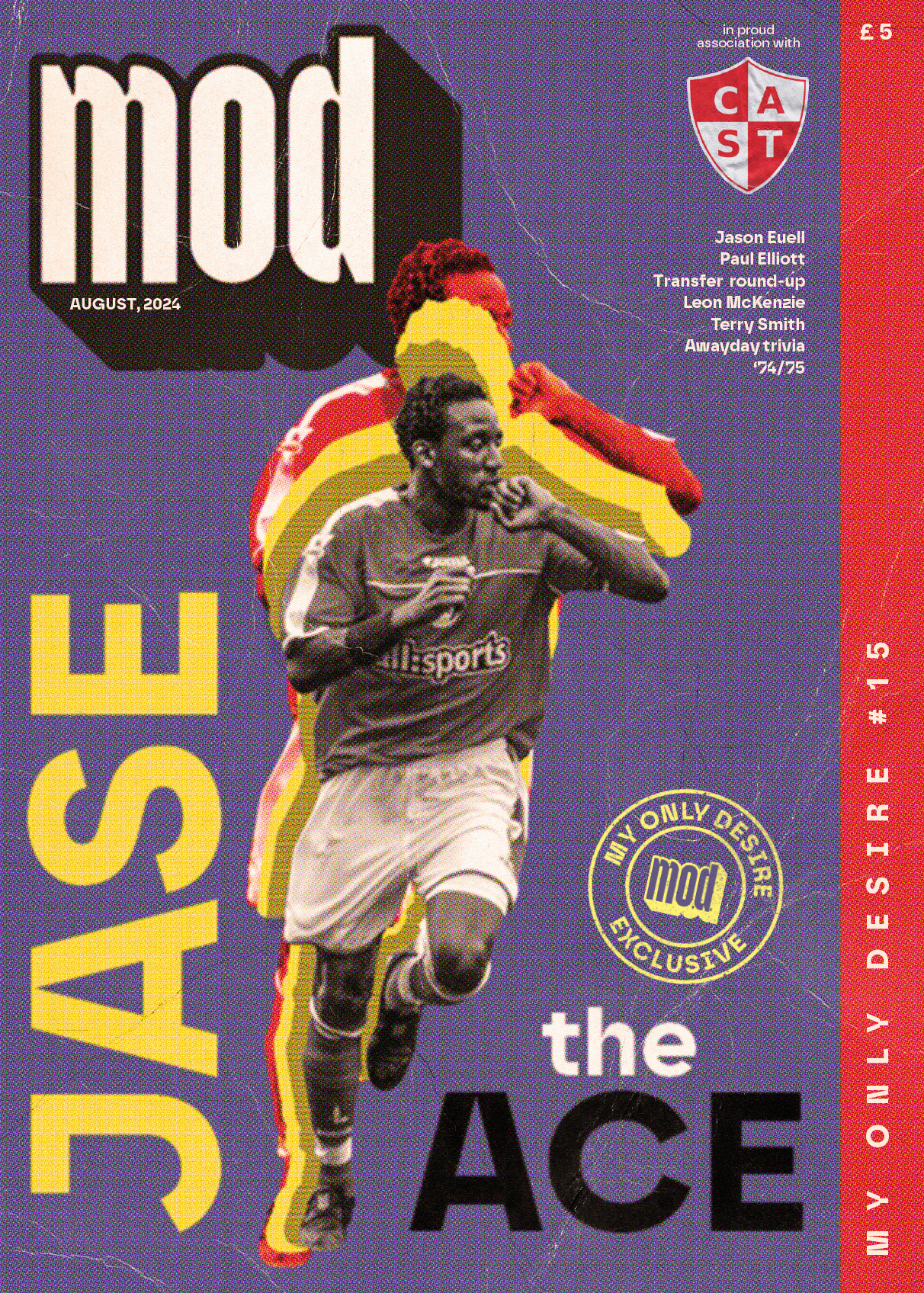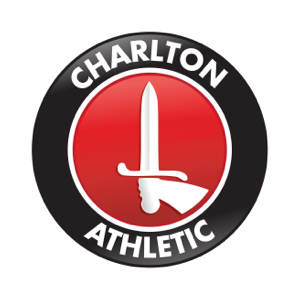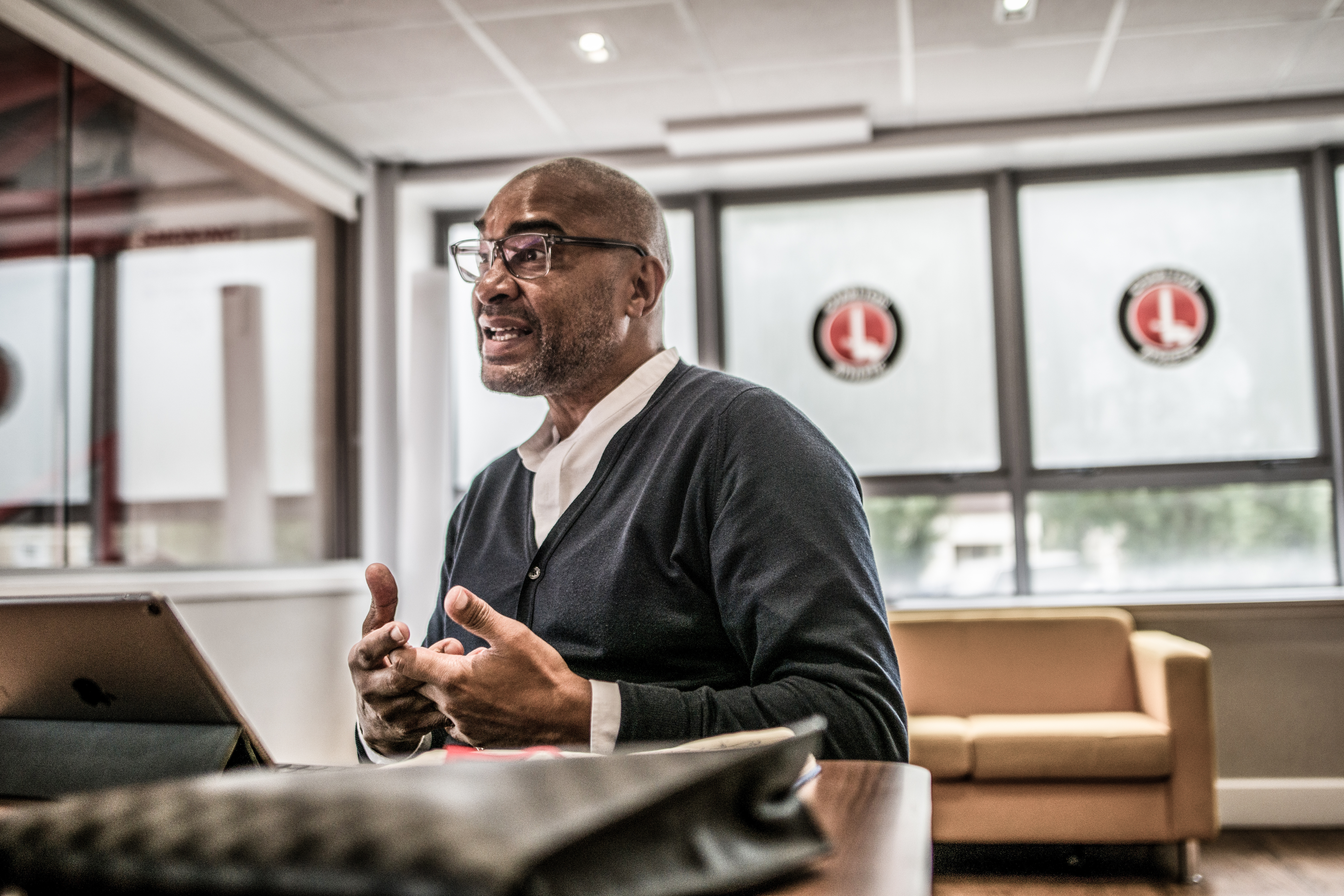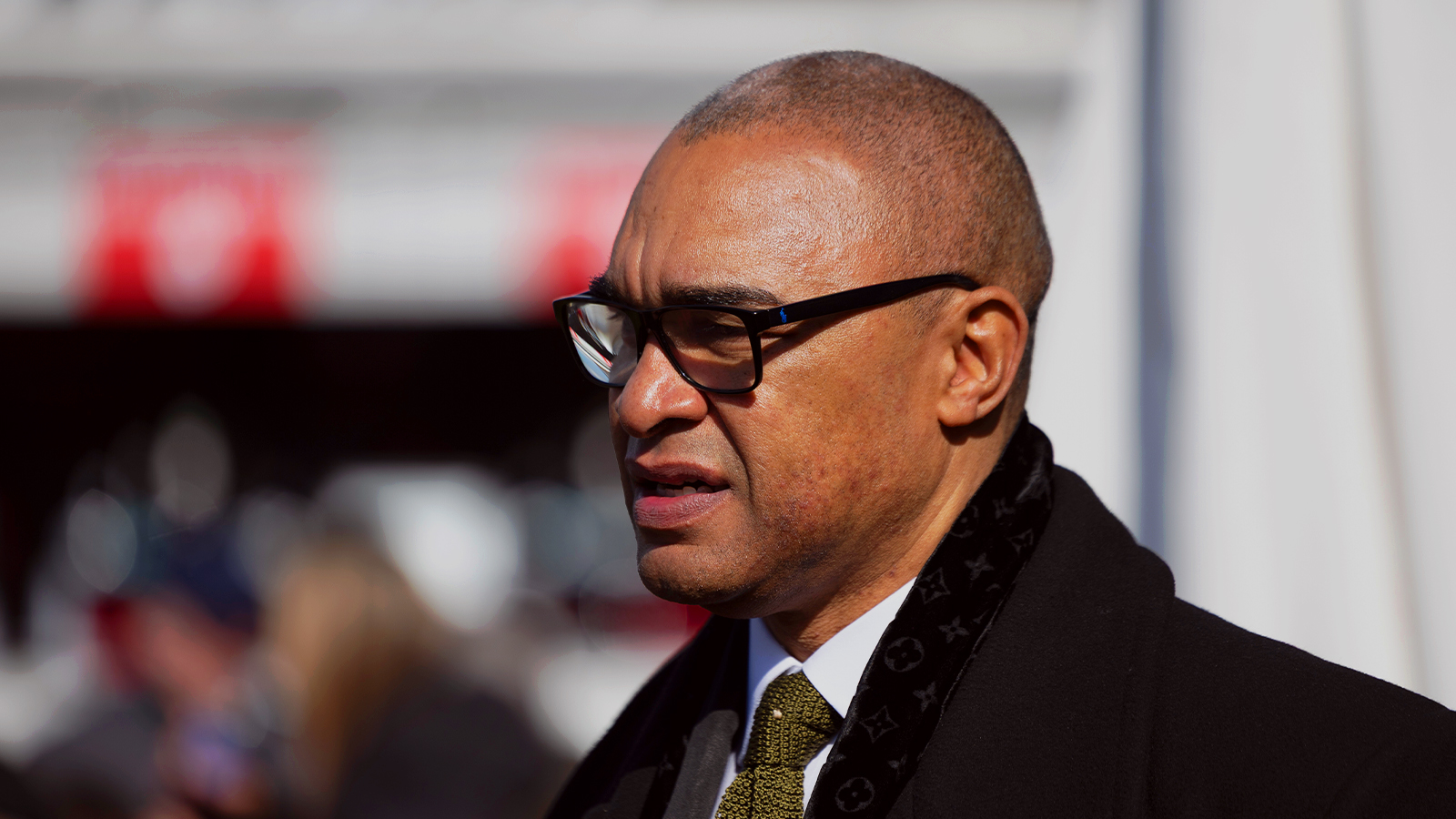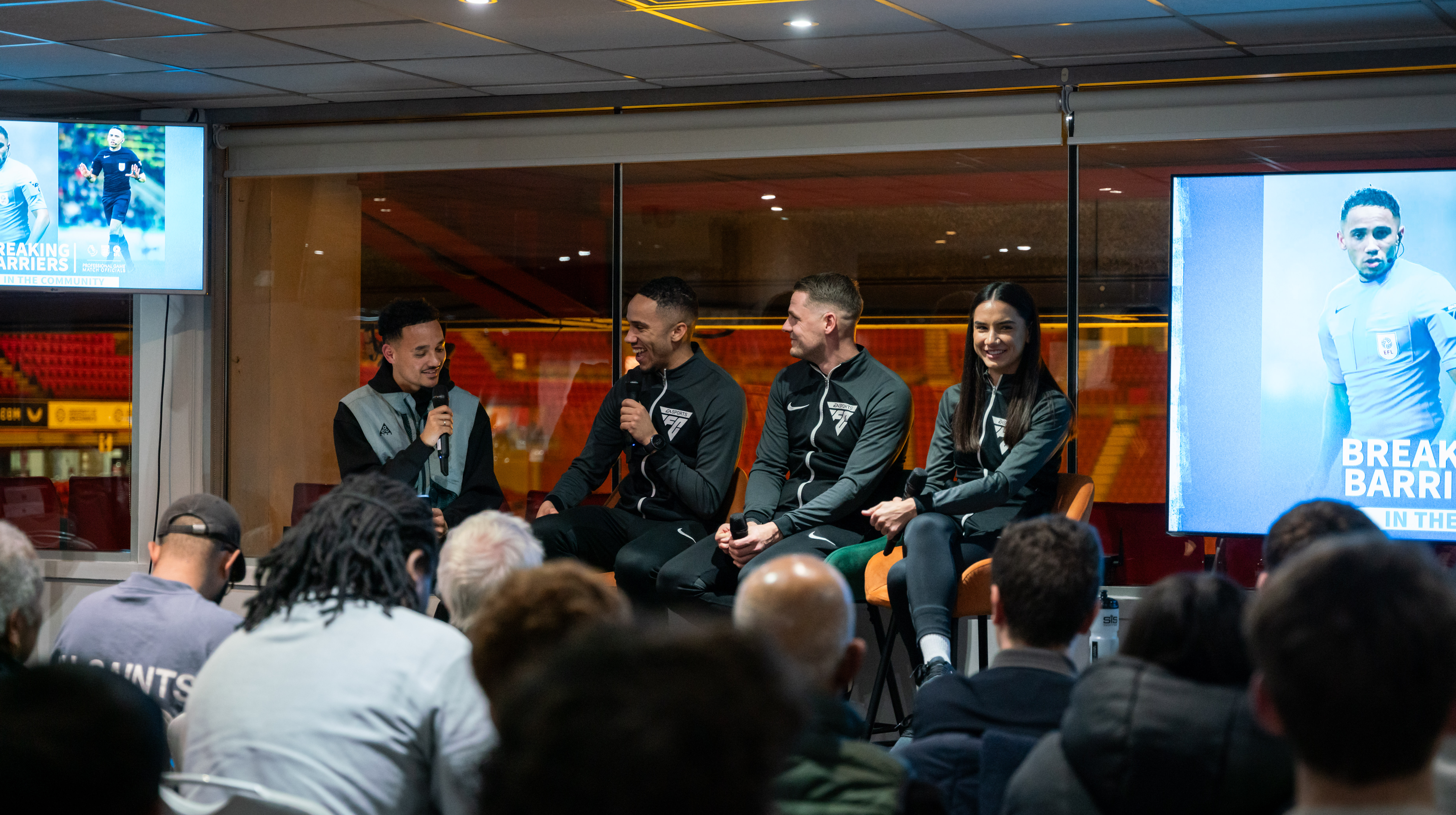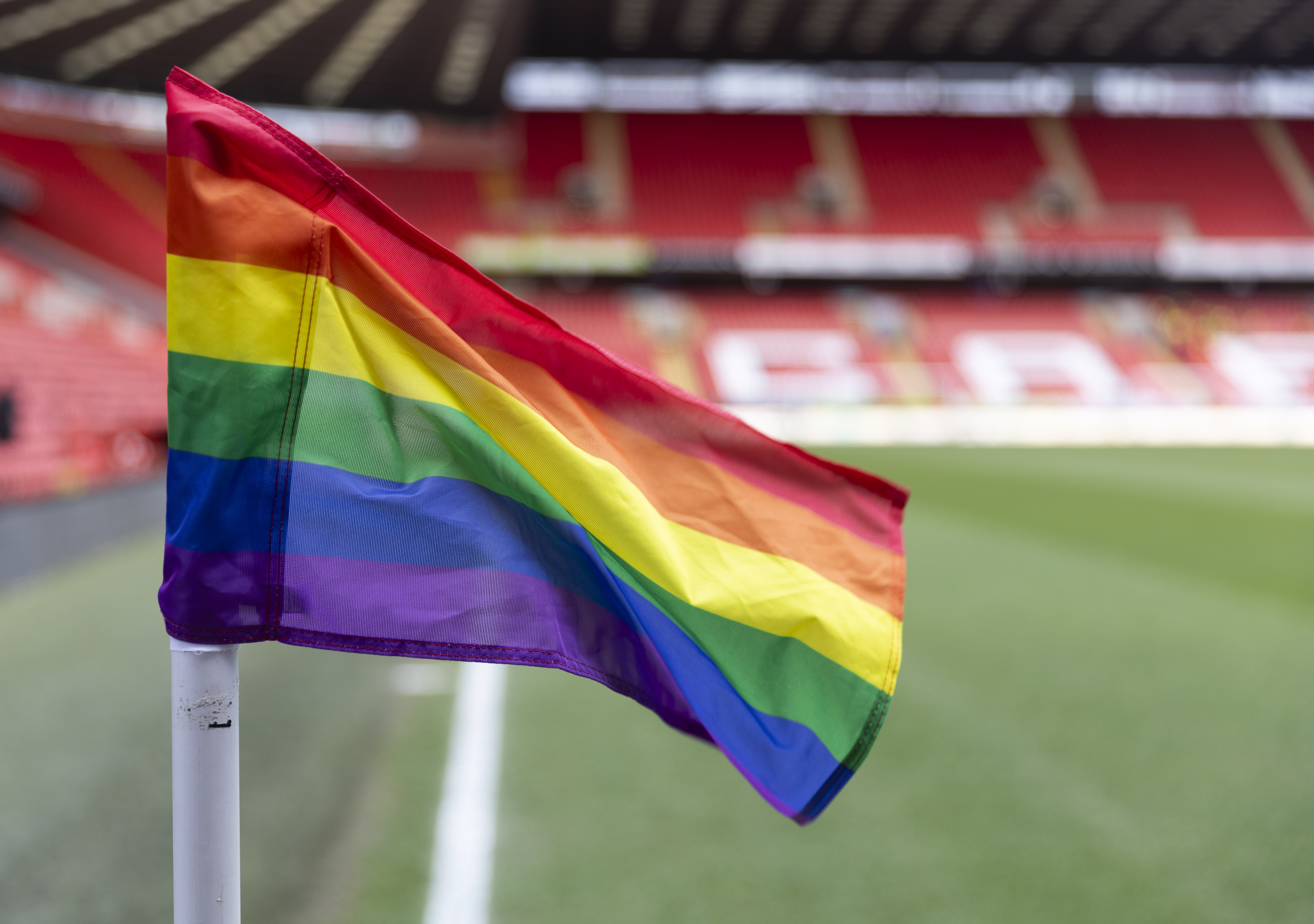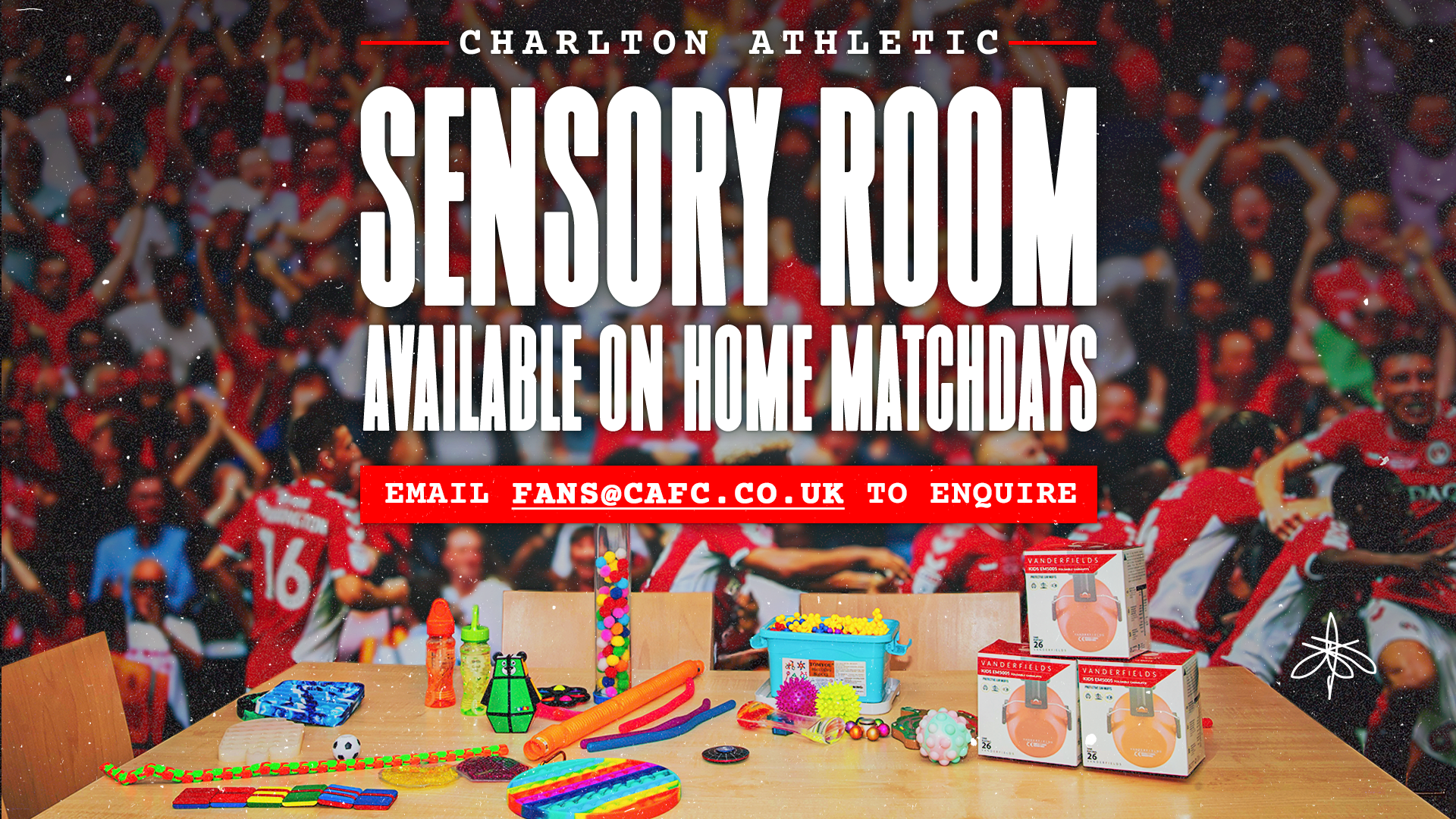The below article appeared in the August edition of fan magazine My Only Desire.
You can buy your copy of the latest issue of the award-winning My Only Desire magazine, as well as back issues, at MODmag.co.uk
All different, all together, all Charlton - a dogged defender in his playing days, now Paul Elliott is back in SE7 driving diversity and distinction.
Paul Breen: Okay, so Paul, as we approach the new season, how does it feel to have been appointed as Vice Chairman at Charlton Athletic, the club of your roots?
Paul Elliott CBE MBE: I’m utterly honoured and humbled to be appointed in the role of an independent Vice Chairman. My family are extremely proud. I have to express my gratitude to Global Football Partners, our ownership group (whose financial support has been excellent from inception and evidenced in the current transfer window to date); Charlie Methven and James Rodwell. Such an appointment sets an excellent example to English Football about the value of diversity, particularly given the significant underrepresentation in the boardrooms across our 92 Clubs.
PB: And how have you settled into Charlton since your return under the present ownership?
PE: First and foremost, I’m back home and I’ve really enjoyed it. It’s as if I’ve come full circle in my life cycle because of being here as a kid, supporting the club since I was eight, and growing up right beside the ground. I lived on The Morris Walk Estate as a child and went to Woodhill Primary School so I’m a local through and through. I often with my elder brothers used to play football, sometimes for a whole day, in the adjacent Maryon Park as a kid. Then a few years later, I came through the Charlton Colts as they were known in the days before the Academy. So I’m back in a place that’s got a real cultural, social and emotional alignment for me. Charlton and places around it – Greenwich, Woolwich, Plumstead, Abbey Wood - are embedded in my DNA. As a family growing up l lived in all those areas of the Southeast. That’s why it has meant so much to come back to the place where I started and where I first broke into the team as a sixteen-year-old, making my debut against Crystal Palace in the early 1980s.
PB: And what do you remember about the players of that period?
PE: Paul Walsh is the first player who comes to mind since he came through with me literally at the same time and then also joined Luton, recommending me to them. Our times together at Charlton and Luton set me on the path I followed to become the first black captain in the Premier League, when at Chelsea, later in my career journey. Paul’s an Abbey Wood boy 18 months older. We’d known each other since we were kids playing football in the park and for our respective Sunday league teams.
As a young pro, he used to pick me up and drive me into training. Sometimes I’d need ‘sick’ days off school even though I didn’t want to sacrifice my education and fortunately got myself formally educated post-career. But, in my early career was concentrating on playing football for Charlton in the first team and being part of Charlton and wanting to believe I had a future. And we had other great players too. I remember Alan Simonson, European footballer of the year, coming in. He was great. Everybody thought that he was our version of Maradona.
PB: And how has the club itself changed since that period?
PE: I think there’s been an obvious evolution but some things are the same. Charlton has always had a rich history of development for players, including players of colour and those from disadvantaged and low socioeconomic backgrounds. Historically too, we’ve offered a pathway to those from the local community. And that’s something that gives us a Unique Selling Point with the parents. They know their children will be looked after, emotionally and educationally, especially from a safeguarding perspective. And that’s something unique about Charlton. We offer both well-being for young players and an authentic pathway into the first team if they show the requisite potential. That’s borne out in the data. Look at some of the players historically who’ve come through, including Ezri Konsa and Joe Gomez, both in the England squad. That’s a testament to the work of people like Steve Avory and that development process giving players an opportunity. And of course, we have evolved too with a lot of great work in the area of EDI, including getting the EFL’s Bronze and Silver awards for EDI which we’re going to keep building on as sustainability is critical.
PB: Yeah that was one of the club’s great off-the-field achievements last season. What has that meant to you personally?
PE: This is a key area of my work as a board member because I know football, I love the game, I believe in the game and cognisant of the wider social and societal impact. In my opinion, the equality, diversity and inclusion area of our football is very, very important.
Not just EDI alone either but what I call the other ‘E’, for equity. That’s equity of all groups regardless of age, gender, ethnicity, sexual orientation, etcetera. And our fans with disability too. That’s something our local Council is also fighting for, which is why we are working so closely with them to reconnect our relationship as a Club as it’s very important.
PB: What branch of the Council are you working with?
PE: With people right at the top of civic representation, especially Council Leader Cllr Anthony Okereke and Cllr Adel Khaireh (RBG Cabinet Member for Children and Young People). These are people who like me and so many of our fans have their roots very much in this diverse community that surrounds the club.
PB: As a local, I see that diversity around me every day.
PE: Yes and that’s what we want to build on, as a community club. By connecting to our community, we’re going from strength to strength. This past nine, ten months, we’ve come from nowhere, to claim the bronze and then the silver award, one of only 10 Clubs across the 72 in the EFL. And that’s down to the hard work of everyone, staff and supporters. I’ve also had the strongest possible mandate from our Chair James Rodwell. Charlie Methven too. Right from the inception they accepted that diversity is embedded in the fabric of the club so we must build and evolve that. So, we, as a club, have to take that lead, be that lead, show that lead and show that initiative. And we’re doing that. So, our collective success in having that recognised has been fantastic.
PB: Can we achieve the Gold standard next?
PE: Hopefully yes through building on our work with the Council and the community and through the continued support of the owners. I’ve got a clear mandate, which is great. For all the roles I’ve got with The FA and UEFA, which are very complex structures I’ve never had such a strong mandate. My confidence is that the leadership is fully committed. The Board has the right intentions of trying to rebuild connections that were lost under previous ownerships. Momentum and focus are back now and we’re going for gold, with the help of our community and key people such as the councillors I mentioned. We want to work with the Council in a collegiate and collaborative way and help them achieve social integration and community cohesion through the power of football – in a way that’s reflective of the Greenwich community.
PB: Does that include an ambition to get a more diverse demographic into the ground on match days and help fill The Valley once again?
PE: Of course, and that’s why the relationship with the Council is critical. They are the bridge into all these wonderful diverse communities we have around us. There’s a huge audience and an untapped demographic out there that we need to welcome and galvanise into Charlton Athletic, alongside our traditional fan base extending out of London into Kent. It’s imperative that we can keep the next generation of fans coming in from Kent too, alongside newer next-generation supporters. That’s going to be the glue holding us together, integrating past, present, and future. And that’s where the strapline is vital.
PB: And so what’s that strapline?
PE: ALL DIFFERENT, ALL TOGETHER. ALL CHARLTON. As I said, diversity has been embedded in all that we’ve done historically in producing players. So what we are doing, we are creating what I call a 21st-century version - what I call modern diversity. And … we are, listen, we’re gonna do this. I want Charlton to be the Diversity Club, in fan base to complement the playing base, which is what I told Charlie Methven when we first met.
PB: So what did you say in that first conversation?
PE: I told him confidently that we’ve got to be the League’s authentic diversity club and use that as the platform for success. The concentrated diversity in SE7 is fantastic. We’ve got that reflected on the pitch and now we intend and aspire to have it everywhere, including, administration and leadership positions, especially for Women and Women of Colour. I say this with intent because going back to the hope of filling The Valley, you’ve only got to look at the Premier League to see the economic benefits of diversity. All those years ago when the Premier League was formed, the rights were worth, I don’t know, maybe something like 300 million quid. Let’s fast forward 33 years. Global audience, 5 billion. Okay? The broadcasting rights, domestically and internationally worth, you know, close to £7 billion. You are seeing in a way close to 200 countries the economic upside of diversity. It’s truly global. So, what we’re saying is we’ve got a fabulous infrastructure, a stadium, with a capacity of just over 27,000 people. And what an opportunity we’ve got to work with a broader, wider community because there is no power like that football power to break down barriers unite and bring people together.
PB: Okay that’s great to hear. And now, although your work’s concerned with developments off the field, how do you think the playing side is developing?
PE: First and foremost, we have an outstanding manager. Nathan Jones has come in and has been very impactful. On the field, off the field, and I think what we’re doing now, we’re building a club. It’s a project, and we are professionalising the work that’s going on. We brought many talented people into the engine room eg Dr Will Abbott as Director of Performance Services to improve fitness and conditioning. Nathan who is driven wants to write a legacy at this club. I think he wanted this project as much as the project wanted him. I love his leadership, his energy, his focus, his aspirations, and his strategy to build a club on and off the field. He wants to make us sustainable and cohesive and make everyone a part of it – the Men’s team, Women’s team, young players in the Academy.
PB: So how do you think that will translate into performances and results?
PE: Our target this season is that we have to aspire for promotion. Everyone on and off the field has to be aligned to this target. We must be bold. I don’t wish to be in the top six. You have to think positively. I’m a winner. I always want to win. Nathan’s a winner. He wants to win. The winning culture and example is what he is embedding in the players and staff and we must deliver it off the field, learning the lessons from last season, leading and setting the right tone from the Board room. Nathan’s adopting a positive playing philosophy. He knows what he wants, how tactically, physically and technically he wants to play, his squad depth, the players that he wants to recruit. Positive acquisitions have been made. He must be given every conceivable opportunity to achieve that.
PB: Hopefully, that all happens and without putting any pressure on Nathan, can you see Charlton back in the Premier League in the future?
PE: To be honest with you, the Premier League has got to be the ultimate ambition, but it’s like life. We have to think about this in a SMART way - Sensible, Measured, Achievable, Realistic, and Timed. I don’t want to delude anybody about the Premier League, and I won’t do that, not even myself, but our immediate priority in footballing terms on the pitch is to get out of this division. That’s why recruitment becomes key. Bringing the right players to enable us to deliver that whilst off the field, we’ve also got to build a culture that marries us up as a club. In the past, I know that fans have been given false expectations. But we’re trying to build something sustainable and it’s the immediate that matters, embedding strong foundations and simultaneously supporting Nathan to give him the most competitive squad that he needs to go out there and deliver outcomes.
PB: As a fan I like the sound of that and the sound of a busy summer – but does that mean you won’t get a summer break?
PE: I’ve just come back from Geneva and then I’m heading to the Euros wearing my other football hats, with The Football Association and UEFA. I’ve got a footballing holiday in progress. And then thereafter, yeah, I’ll have a bit of quality, reflective time. Just some sun, some sun on my back. Luckily too my wife’s supportive of me when I’m away because she knows how much I love my football.
PB: One last question to wrap up. If there was one song that, that says Charlton for you, what would it be?
PE: You’re the best thing that’s ever happened to me by Gladys Night and the Pips. I’ve got to include my wife & kids in this song too as Max is my best signing and my kids Dominic-Paul and Tamara-Elise are my best presents.
Words: Paul Breen
Photography: Jack Burton
The above article appeared in the August edition of fan magazine My Only Desire.
You can buy your copy of the latest issue of the award-winning My Only Desire magazine, as well as back issues, at MODmag.co.uk
